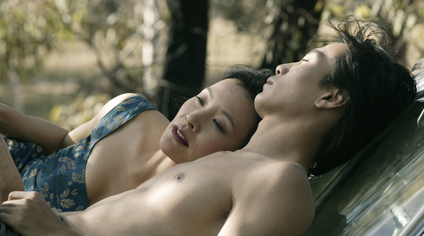Photo by Ari Simphoukham
I have been meaning to blog about last week's student actions in response to the recent agreement signed between the U.S. and Vietnam, allowing for thousands of folks currently living here to be deported.
Here's a story in the Daily Bruin about last week's student demonstrations, which included UCLA, UCSD, UC Davis, and other campuses.
According to Rhummanee Hang, a Cambodian American student at UC Davis who's a member of Southeast Asians Making Immediate Change (SEAMIC), last Wednesday's demonstration at her campus had a turnout of 200. There was a march, speakers and performers, spoken word artists, emcees, dancers, and signing of postcards to representatives.
This is how she explained, in an email, why students, particularly Southeast Asian students, are speaking up against the pact:
"Southeast Asians came to the United States as a result of the wars in Southeast Asia (Vietnam, Cambodia, Laos). Many of the 1.5 generation are the ones at risk of getting deported because of these policies. They came here when they were very young, grew up in this country, and their lifestyle, their way of thinking and being is very "American". Many of these people are not fluent in their native language and know little about the country where they were born. To send them back to a country that they are unfamiliar with and are still suffering from the affects of the war is unfair.
The current policies itself are unfair, because it offers no second chance. There is no due process for nationals who sign their rights away. But there are numerous reasons for why they might do that. Because this affects my community, I feel it is important. We speak up because they can't do it themselves."



